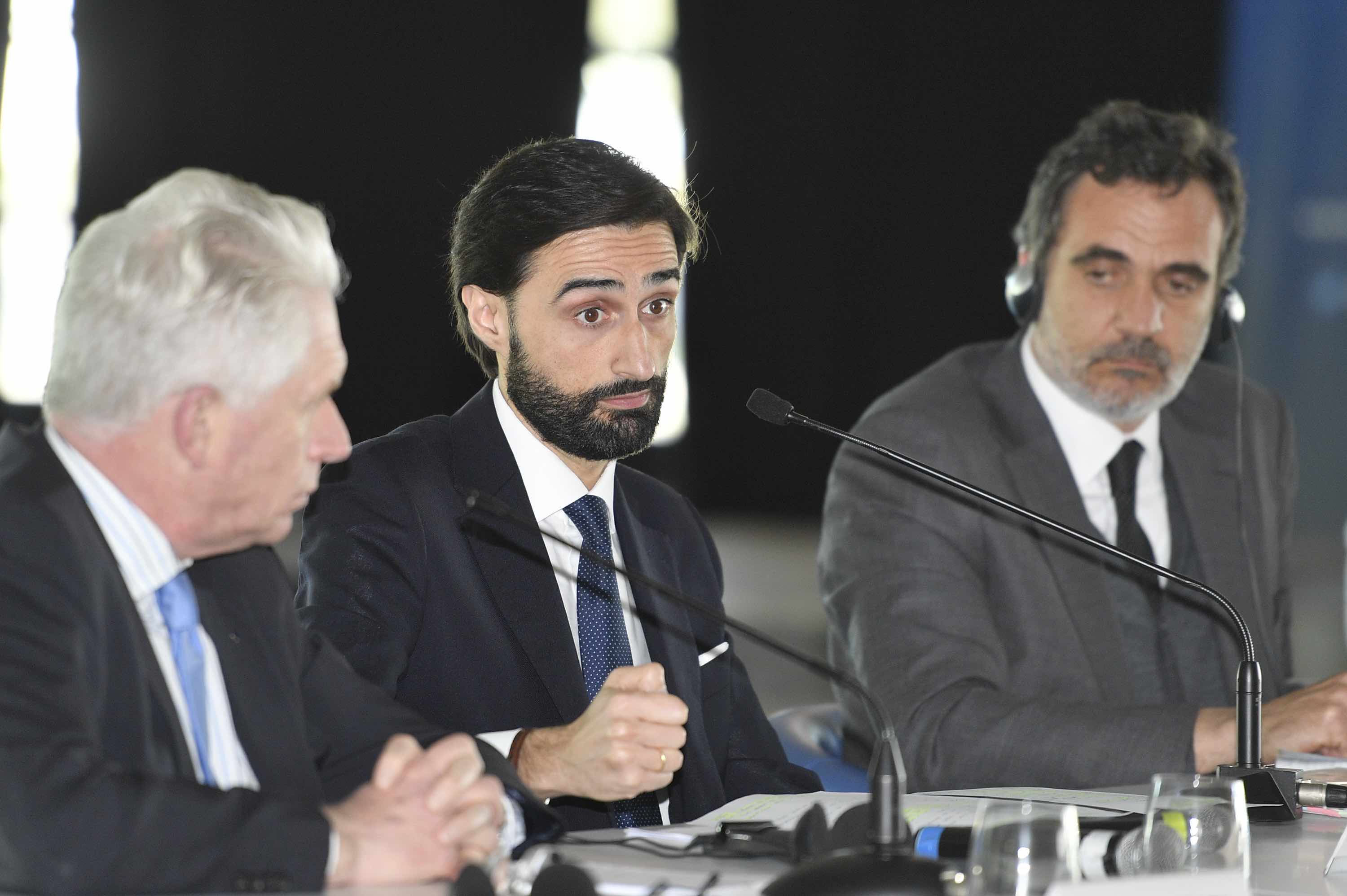By Paul Nicholson
February 20 – Sport must be given more power to protect its rights and commercial income from criminal piracy in any form, was the overriding demand from a panel at the World Congress on Global Leadership and Anti-corruption in Sport hoisted by SIGA in Rome.
“We have argued for a dedicated law protecting sports owners/organisers rights, but there is clearly little or no appetite to introduce a new or neighbouring right in this space,” said Mark Lichtenhein (pictured left), chairman of the Sports Rights Owners Coalition.
Events in themselves are not subject to copyright law. Only once the event is filmed is it subject to copyright. Once that takes place the broadcaster has the right in terms of a fixated picture.
“Sport attracts very little IP protection and relies on other areas of the law. Monetisation of IP is key to any sports business but the protection afforded to sport is very little.
“Value of sport is almost exclusively in the live window and any legal process to protect against piracy takes much longer than the sport itself. But with 80% of sports rights revenue from broadcast rights it is of utmost importance that value is protected.”
Digital piracy is a very real threat to the economics of global sport. With broadcast rights buyers already coming to terms with a changing commercial and platform dynamic brought by digital, sports are already having to work harder to maintain revenue streams.
One solution to combatting the piracy is to have the right to take down the pirate channels.
Diego Dabrio Alvarez (pictured centre), Senior Audio-Visual Anti-Piracy Expert, Commercial & Technology Legal Services, UEFA, said: “Technology has an important role in allowing us to protect our content and our revenues. It is an important challenge but if we are to have meaningful impact it must be done in real time. Piracy has increased but we are not increasing the means available to counter piracy…if we know who they are and where they are we should be able to remove their content.”
There are probably less than 100 major operators in the world capable of streaming at scale. Some, like Youtube, are now more reactive to removing illegal pirate streams but, incredibly, they are not required to do so by law.
“We are asking policy makers to give us an enforceable obligation to intermediaries to give rights owners real time take down tools where we can take down stolen IP content at source,” said Lichtenhein.
Emanuel Macedo de Medeiros, CEO of SIGA, summed up the need for change saying: “We are in the full swing of the fourth industrial revolution. How can we as sport be expected to have a role in the US’s Sustainable Development Goals if sport is not given a right to protect its income…The main income stream of sport is reliant on broadcast and sport must be able to legitimately commercialise and protect itself.”
Contact the writer of this story at moc.l1745329621labto1745329621ofdlr1745329621owedi1745329621sni@n1745329621osloh1745329621cin.l1745329621uap1745329621

